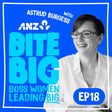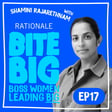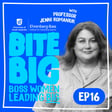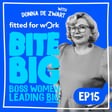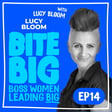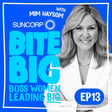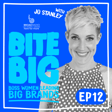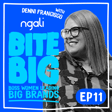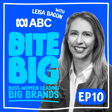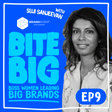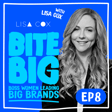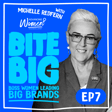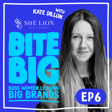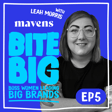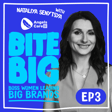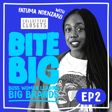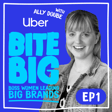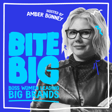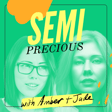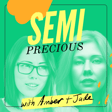
Amber Bites Big with Carolyn Bendall - CMO @Swinburne University
In Episode 4, Amber Bonney Bites Big with guest co-host Carolyn Bendall - the powerhouse Chief Marketing Officer of Swinburne University, and recent appointee to the MCC committee.
Inspired by Amber's own Mantra, "bite big and chew like hell", in this episode we talk about Carolyn's extensive years of experience and how her Mantra, "Be visible, be brave, be kind", was built on lessons learnt from early in her career, and has evolved into something that is true and authentic to her own being.
With a bucket list of achievements, such as 16 Cannes Lion awards for creative excellence, and a 3-time Australian CMO top 50, we dig deep with Carolyn into the importance of having visible female leaders for younger generations to see and learn from, and how when Carolyn first started out, jobs for women came with a gender lens over it and how she intuitively knew it just wasn't right and women should be able to do anything.
As a big advocate for inclusion and diversity of all kinds, we discuss Carolyn's impact and contribution to a more inclusive world, how she consciously builds her teams so as celebrate the importance of diversity, and how she is bringing modern thinking to a historical institution.
Bite Big has donated $500 to the chosen charity The Man Cave, a mental health and emotional intelligence charity that empowers boys to become great men.
If you would like to know more about our host Amber Bonneyher business The Edison Agency or co-host Carolyn Bendallyou can connect and follow these boss women via the socials links below!
Carolyn LinkedIn
Swinburne University of Technology
ANZ ‘GAYTm’ Campaign
Carolyn’s Book Recommendation ‘Personal History by Katherine Graham’
Carolyn’s Podcast Recommendation ‘Chat 10 Looks 3’
The Edison Agency's Instagram
Amber's Instagram
Amber's LinkedIn
The Man Cave
